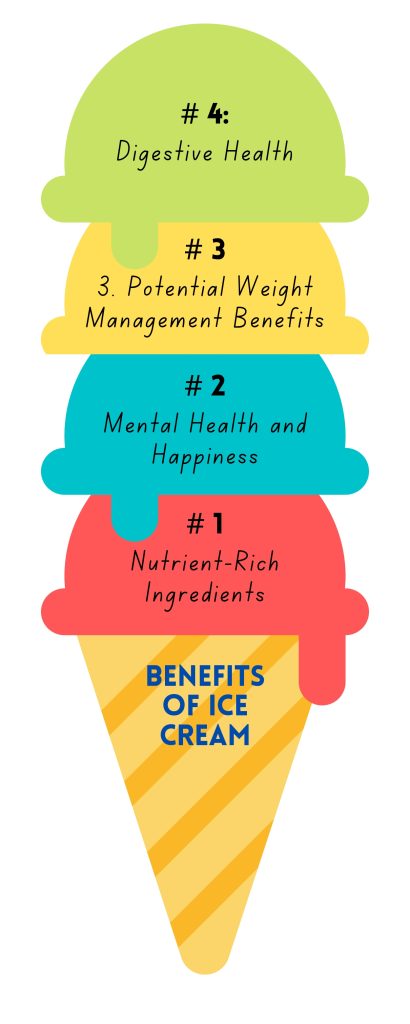When it comes to indulgent treats, ice cream is often seen as a guilty pleasure. However, recent insights from dietitians highlight that ice cream, when consumed in moderation, can offer some unexpected health benefits.
Here’s what dietitians are saying about the surprising health perks of this beloved dessert:
1. Nutrient-Rich Ingredients
Despite its reputation as a sugary treat, ice cream contains several essential nutrients:

- Calcium: A single serving of ice cream can provide a good dose of calcium, which is essential for maintaining healthy bones and teeth. Calcium also plays a role in blood clotting, muscle function, and nerve signaling.
- Protein: Ice cream made from dairy sources provides a decent amount of protein, which is crucial for building and repairing tissues. It also helps maintain muscle mass, especially important as we age.
- Vitamins: Many ice creams are fortified with vitamins A, D, and B12. Vitamin A supports eye health and immune function, while vitamin D enhances calcium absorption and supports immune health (Health Insiders).
2. Mental Health and Happiness
You May Also Like : “Hay Fever or COVID? Key Symptoms to Watch For”
Eating ice cream can have positive effects on mental health due to its impact on brain chemistry:
- Endorphin Release: Consuming ice cream can trigger the release of endorphins, the “feel-good” hormones, which can enhance mood and provide a sense of happiness.
- Serotonin Production: The carbohydrates in ice cream can boost the production of serotonin, a neurotransmitter that helps regulate mood and reduce stress. This effect can be particularly beneficial during times of emotional distress.
3. Potential Weight Management Benefits
While it may seem counterintuitive, moderate consumption of ice cream can be incorporated into a balanced diet:
- Controlled Indulgence: Allowing yourself a controlled indulgence like ice cream can prevent feelings of deprivation, which can lead to over consumption of other, less satisfying foods. This can support long-term adherence to a healthy eating plan.
- Portion Control: Eating a small serving of ice cream can satisfy sweet cravings and prevent binge eating episodes that may occur when such cravings are ignored.
4. Digestive Health
Certain types of ice cream can aid in digestion:
- Probiotic Ice Cream: Some ice creams are now being made with probiotics, which are beneficial bacteria that support gut health. Probiotics can improve digestion, enhance immune function, and even help manage symptoms of irritable bowel syndrome (IBS).
5. Hydration
Though not a primary source, ice cream can contribute to overall hydration:
- Fluid Intake: Ice cream contains water, and consuming it can help contribute to your daily fluid intake, especially in hot weather when you need extra hydration.


